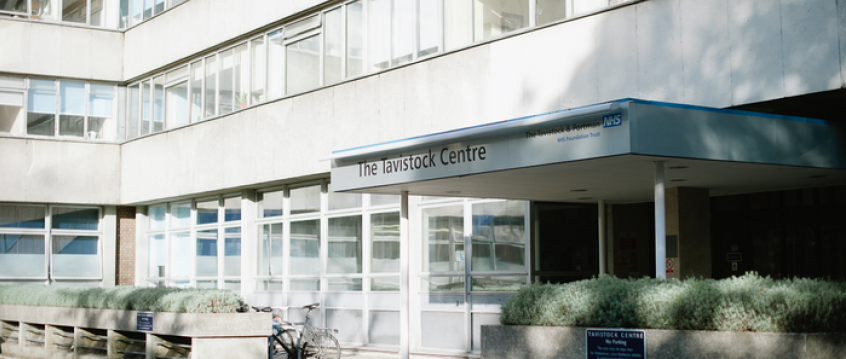
You may have seen the recent media coverage of the judicial review brought by Keira Bell and Susan Evans against the Tavistock clinic and perhaps you wonder what on earth this is all about? This was a landmark judgement that will have worldwide repercussions as well as implications for society in general.
The Tavistock and Portman is a London Hospital Trust providing mental health services for adults and children. The particular part of the trust involved in this judicial review is the Gender Identity Development Service (GIDS), which was set up in 2009 to assess and treat children and young people with gender dysphoria. Gender dysphoria is defined by the NHS as the sense of unease a person feels due to a mismatch between their biological sex and their gender identity and this clinic is where almost all children with gender identity issues are treated in the UK.
Children and young people suffering gender dysphoria referred to the Tavistock clinic undergo a thorough psychosocial assessment (looking thoroughly at any underlying psychological, mental health, developmental conditions such as autism or family issues that may be contributing to their difficulties) before a formal diagnosis is made. Children experiencing distress around puberty are then potentially referred on to be considered for medication to block puberty (known as puberty blockers). These medications are given to children as they start puberty so that can be as young as 10. At the age of 16 these children can progress to cross-sex hormones (testosterone or oestrogen) and following that, some will opt for surgery.
But there has been increasing concern about this medical and surgical treatment, and the lack of psychological and therapeutic support for these children and young people. In addition, there has been an explosion in referrals to this clinic as well as a significant change in the demographics of referrals.
When the clinic opened in 2009, there were 97 referrals, with just over half of these being biological males). Last year, there were 2,728 referrals, around 76% of whom were biological females. The precise reason for this increase (and in particular the huge rise among teenage biological females) is not understood and has not been formally investigated.
As the number of referrals has increased so has the number of children referred on for medical treatment. This was initially being done as part of a research study because of the lack of knowledge regarding physical and psychological outcomes of these treatments. However, concerns started to be raised that adequate assessment and appropriate therapy was not being given to these children and that the long-term outcomes were largely unknown.
In addition, as the referral numbers increased so did waiting times and it became increasingly common for children to have already undergone social transition (to be already identifying and living as if they were the opposite sex) before presenting at the Tavistock clinic (in many cases social transition occurs even before referral or assessment by any medical professional).
It is important at this point to look at what the outcomes were for these children prior to the use of puberty blockers. Studies show that between 70% and 90% of children suffering from gender dysphoria will, after going through puberty, become comfortable with their biological sex. Only a small percentage will persist with feelings of gender dysphoria into adulthood.
However, the situation has been that many children with gender dysphoria are referred to a gender identity clinic (many of these children will have already socially transitioned and are determined they want medical and surgical treatment) and a large number of these will be referred on for puberty blockers.
Puberty blockers are medicines that are used for the treatment of breast cancer, prostate cancer and for children that go through puberty at a very young age. These children stop taking the medication when they reach the normal age for puberty and continue through normal puberty. In the case of children with gender dysphoria, however, it is normal puberty which is being blocked, with all the physical and emotional changes that come with it.
It was initially intended that giving puberty blockers would reduce distress in the child or young person and enable them to explore their identity without the distress of the physical changes. It quickly became clear that almost all of the children who started taking puberty blockers progressed to taking cross-sex hormones. But the NHS website was recently updated to reflect the understanding that puberty blockers in this scenario are not easily reversible.
We need to keep clear in our minds the fact that a person cannot change their biological sex. Every cell in their body has XX or XY chromosomes (apart from the extremely rare incidences of genetic disorders). A person who goes down the route of a medical and surgical gender reassignment will be on hormone therapy for the rest of their lives and (depending on what treatment they have had) will likely be rendered infertile and in many cases without sexual function.
It is concerning that the current ideology around gender identity is illogical and operates on the belief that biological sex is irrelevant to being a boy or girl, that being a boy or a girl is based on feelings rather than biological reality. It is particularly concerning that this is being increasingly taught in schools through books such as "Who are you? The kids guide to gender identity" and the No Outsiders programme. This is being introduced to children at an age where it can be extremely damaging.
Keira Bell, the young woman at the centre of the landmark judicial review, was a patient at Tavistock and was prescribed puberty blockers aged 16 and testosterone a year later before undergoing a double mastectomy at 20. She is clear that her underlying mental health problems were not addressed and that the treatment did not relieve her feelings of dysphoria.
She has now detransitioned (returned to living as her biological sex) and there are increasing numbers of young adults coming forward who are testifying to the fact that transitioning did not relieve their distress in the long term and that they are now left with varying degrees of irreversible changes to their bodies.
She and Mrs A, the second claimant in the case, claimed that children and young people under the age of 18 were not competent to give consent to the administration of puberty blocking drugs, and that the information given to children is misleading and insufficient to ensure such children or young persons are able to give informed consent.
The judgment from the High Court ruled that puberty blockers and cross sex hormones are experimental treatments that cannot be given to children in most cases without application to the court. At long last, there is a ruling that establishes the facts that clinicians have been trying to raise for a number of years, namely that:
- Puberty blockers are not "fully reversible"
- Puberty blockers do not just pause puberty but are the first stage in a medical pathway that few children come off
- There is no evidence that puberty blockers alleviate distress
- Treatment with puberty blockers and cross-sex hormones has serious physical consequences, including loss of fertility and full sexual function, with profound long-term risks
- Treatment is experimental
- Instead of medical treatment being a last resort it is the only treatment being offered for children with complex histories and mental health conditions
- No therapeutic pathway is being offered to these children
So, what are the implications of the ruling in this case? It is noteworthy that within hours of the judgement being made public the Tavistock announced that they had "immediately suspended new referrals for puberty blockers and cross-sex hormones for the under 16s" and that all those already on puberty blockers would need a full clinical review. They also committed to ensuring appropriate psychosocial support and psychological therapy is available.
A review of the gender identity services had already been commissioned by NHS England and the Tavistock was due to be inspected by the CQC. The judgments from this judicial review will undoubtedly feed into them.
There is of course still huge concern about how judgment this will affect children and young people and their families, especially those who have already embarked on social transition and regard puberty blockers as their only option. There is an urgent need to look at how these highly vulnerable children are supported in the community, as well as in schools and in mental health services.
The Bayswater support group has a very helpful resource for parents whose children express gender identity difficulties, but I think some of the principles here can be applied more widely as we think about our own responses to this issue, whether or not we actually know a young person with gender dysphoria.
- Listen: these are children and families in distress who need to be listened to and need support. There are likely to be many other issues, not just the question of gender.
- Inform yourself: this article has been a very brief overview of the situation. For further reading on the topic helpful websites include:
https://www.transgendertrend.com/
https://4thwavenow.com/
https://www.segm.org/
https://www.bayswatersupport.org.uk/ - The internet is not always helpful: there is a vast amount of unhelpful information regarding gender dysphoria and transition on the internet and it is important to look at all the evidence and to find reputable sources.
- What are children being taught in schools: we need to be aware of some of the misinformation being given to children and staff in schools and other professions. There is widespread concern over training being given by organisations such as Stonewall, Mermaids, Gendered Intelligence and many others.
- Consider how you would handle issues such as names, pronouns, toilets etc in advance if possible so that you don't panic if you are faced with a situation.
- Think critically about sex and gender: What does it actually mean to be male or female? What is biological and what are gender stereotypes?
- Addressing mental health issues: a child or young person may need professional help but it is crucial to seek help from someone who is going to give the right help (this is not always the case as this judicial review has highlighted) or they may just need to be listened to and supported.
The issues around gender identity and gender dysphoria are complex and need to be approached with compassion and understanding while ensuring that the truth of biological reality remains clear. Children and young people deserve the best and most effective interventions based on evidence and facts, not on ideology and feelings. This judgment from the High Court instigated by extremely courageous individuals is one step towards ensuring that vulnerable young people are protected.
Dr Julie Maxwell is a community paediatrician and committed Christian. She works part-time for Lovewise, a Christian charity providing relationships and sex education from a Christian perspective, and is a trustee of the Family Education Trust, a national educational trust which researches the causes and consequences of family breakdown, and publishes resources on a broad range of family-related issues.













